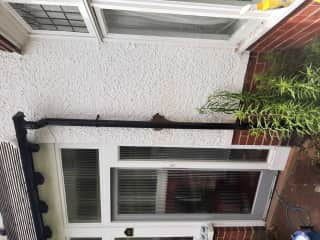Fochabers is a village in the Parish of Bellie, in Moray, Scotland, 10 miles (16 km) eastern of the cathedral city of Elgin and also located on the east bank of the River Spey. 1,728 people reside in the town, which delights in an abundant musical and cultural history. The village is likewise residence to Baxters, the family-run producer of foods items. The village owes its presence to Alexander Gordon, 4th Duke of Gordon (1743-1827). During the late-eighteenth century, during the Scottish Knowledge, it was fashionable for landowners to found new communities as well as villages; these can be recognised around Scotland, due to the fact that unlike their precursors they all have directly, wide streets in primarily rectangular designs, a central square, and your houses developed with their major elevations parallel to the street. The lessees benefited from more spacious houses, as well as the Fight it out, it needs to be stated, taken advantage of not having the hoi polloi living in hovels exactly on the front door of Gordon Castle. Fochabers was founded in 1776, and is one of the most effective instances of a prepared village. It is a sanctuary, with a lot of the structures in the High Street detailed as being of historical or building rate of interest, as is Bellie Kirk, the Roman Catholic church St. Mary's Fochabers, which houses jobs by remarkable craftsmen, and also the Episcopalian church, Gordon Chapel, which flaunts the biggest collection of Pre-Raphaelite stained glass in Scotland. Electrical energy was brought to the town in 1906 by Charles Gordon-Lennox, 7th Duke of Richmond supplied from a tiny hydro-electric creating station built in 1905 in the Quarters area on the financial institutions of the fast-flowing Spey. For a time in the mid-twentieth century, Fochabers was the residence of 3 duchesses - Hilda, Duchess of Richmond and also Gordon; Ivy, Duchess of Portland and Helen, Duchess of Northumberland. Between 1893 and also 1966 the village had a train terminal, Fochabers Town, although after 1931 this was open only to products. For virtually 3 years, individuals of Fochabers advocated a bypass, as the village is situated on the A96, the only direct route from Aberdeen to Inverness, as well as as a result experiences significant website traffic issues. Construction work on a bypass for Fochabers and also the neighbouring village of Mosstodloch began on 2 February 2010 and was completed in January 2012, at a cost of £31,500,000. The project was considerably delayed due to conflict relating to the suggested path, as well as discovery of a Neolithic settlement on the site of the bypass.








